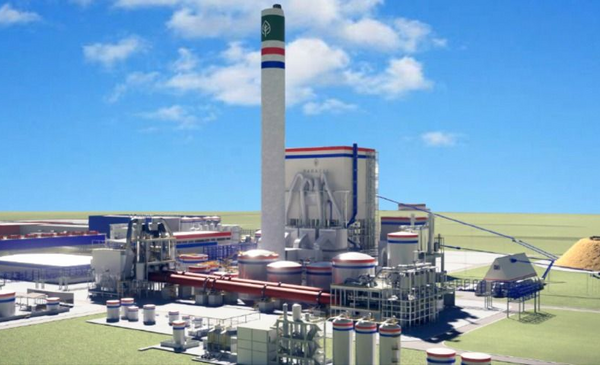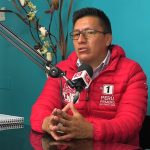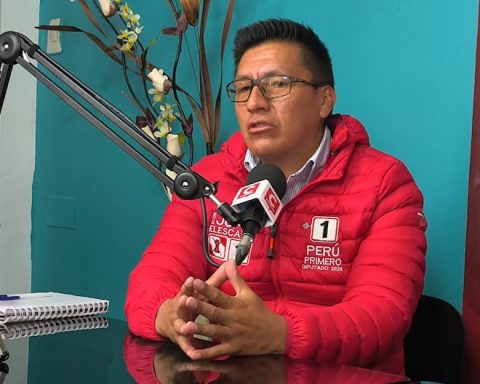Paracel company.which is building a pulp production plant in the Paraguayan region of Concepción, You are defining the port you will use to get your export merchandise.
Among the alternatives managed is the port of Nueva Palmira, according to the president of the National Ports Administration (ANP), Juan Curbelo, to Vision FM of Fray Bentos. A few weeks ago there were meetings between port authorities and the company’s logistics adviser, Uruguayan Fernando Puntigliano, to advance the issue. The executive was president of the ANP during the first administration of the Broad Front.
Curbelo expressed to The Observer that “it is very probable” that the company decides to use the public docks of the port of Nueva Palmira, with which all the production would leave through Uruguay.
For its part, puntigliano said to The Observer that the colonial town is a “candidate” that is being considered for pulp transshipment, but the place has not yet been defined. The executive preferred not to comment further on what other alternatives are being considered.
During the past year, it had also transpired that the Argentine group PTP, specialized in logistics, planned the construction of a new multipurpose port complex on that area of the Uruguay River to operate with both barges and ocean-going vessels, and with a focus on the future production of Paracel.
With an investment of US$ 42 million, the 42-foot-deep terminal will have a storage and operations capacity of five million tons of cargo, including 60,000 m² pulp storage facilities and a liquid bulk terminal. of 100,000 m³, El Cronista had reported.
Port of Nueva Palmira.
The Paraguayan plant
The Paracel industrial plant currently under construction will require an investment of some US$ 3,600 million, the largest in the private sector in the history of the Guarani country. The venture has as its main partners the Paraguayan Copetrol of the Zapag group, which operates in the fuel import and distribution business, and Girindus Investments, a group of companies based in Sweden. The factory is expected to be operational in the last quarter of 2023 and employs around 4,000 people directly.
Its activity will be focused on the production of bleached eucalyptus kraft cellulose pulp, and for a volume of 1.5 million tons per year that will have China as one of the main destinations. The project will outsource the necessary export logistics development (sea and river ports).
In addition, it expects to generate approximately 220 MW of renewable energy, of which about 100 MW would be sold to the national grid. The factory will be located on a 1,200-hectare former cattle farm 13 km north of the city of Concepción, on the left bank of the Paraguay River, and connected to Concepción by 18 km of existing roads.
The Paraguay River will be the watercourse from which the water for the plant will be drawn and which will receive the treated effluents, according to information published by IDB Invest. The plant will consume about 6 million cubic meters of eucalyptus wood a year once it is up and running.
The company’s CEO, Nils Grafström, stated last year in an interview with InfoNegocios de Paraguay that until 2030 they will need imported wood and it is planned to use their own trees from 2026. Today it has more than 105 thousand hectares of fields, of which almost 100% of the hectares are suitable for planting, located at an average distance of 130 km from the factory.as reported by the company on its website.
UPM’s specialized terminal
UPM’s Business Development Director, Gonzalo Giambruno, told The Observer that the specialized pulp terminal being built in the port of Montevideo will be operational by the end of this year. The executive explained that it is a work that extends the logistics capacity because it generates a communication interface with the railway and with the port that, at 14 meters, will have more competitiveness.
Today all of Uruguay’s pulp passes through Brazil because Uruguay cannot load full ships in Nueva Palmira, and the ships are completed in the neighboring country. “This creates logistical independence and we won’t have to have synergies with our Brazilian competitors,” Giambruno said.

















